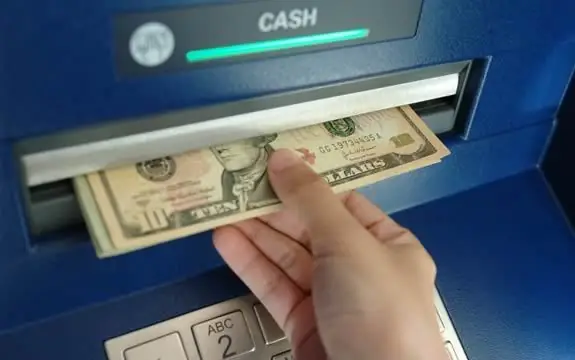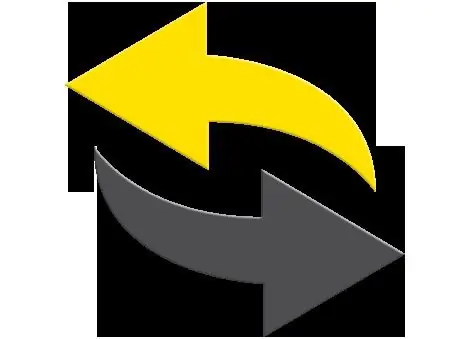2026 Author: Howard Calhoun | calhoun@techconfronts.com. Last modified: 2025-01-24 13:10:37
A conversion operation is a transaction carried out by participants in the foreign exchange market to exchange the currency of one state for the monetary unit of another. At the same time, their volumes are agreed in advance, as is the course with settlements after a certain time. If we consider the concept from a legal point of view, we can conclude that a conversion operation is a currency purchase and sale transaction. In order to designate it, they use the stable English concept of Forex or FX, which is an abbreviation for the expression Foreign Exchange Operations - "currency exchange operations".

Conversion operations differ from traditional credit and deposit operations in that they are performed at a certain exact moment in time. Transactions of the second type have different urgency and time duration.
Types of conversion transactions
These operations can be divided into two main types:
- current or spotdeals;
- terms or forwards.
Spot operations (spot) occupy the largest volume on the market. International practice provides that the date of their implementation is the second working day after the implementation. These conditions are suitable for the participants in the transaction, since during the provided time it is possible to complete the execution of payment documents and the processing of existing documentation. The place, which is determined for the exchange of currencies at current quotes, is the spot market (spot market).

Forward conversion operations (forward) include:
- forwards (forwards);
- futures;
- options;
- swaps.
These transactions can also be found under the name "derivatives". They were specially created for real business. This is due to the fact that they allow in the future to reduce changes in quotations on the international currency market. For those who wish to make money using the Internet on Forex, these financial instruments are practically irrelevant. At the same time, they should be considered to understand the concept of conversion operations and their types.
Spot market and its participants
The spot market is a market for the urgent supply of currency. The main participants are banks that exchange currency on the spot market with partners:
- with client firms directly;
- with commercial-type banks in the interbank market;
- with banks andclients through brokers;
- with central banks of states.
The spot market can serve individual requests and speculative transactions of companies and financial institutions.

Spot Market Rules
The rules of this market are not fixed in international conventions, but all participants in transactions must adhere to them without fail. These include:
- payments must be made no later than two working banking days, and in the amount of the agreed currency without additional interest rate setting;
- most often transactions are implemented on the basis of computer-type trading, which provides for confirmation on the next business day using electronic notifications;
- the course must be followed without fail.
The main instrument of the spot market is an electronic transfer carried out through the channels of the SWIFT system (SWIFT).
Purposes of spot conversion operations
This type of deal accounts for about 40 percent of FOREX trading volume. Their main goals can be called:
• execution of conversion-type orders of clients of a financial institution;
• liquidity support, for which banks exchange currencies from one to another using their own funds;
• conclusion of speculative conversion transactions;
• exclusion of the possible presence of uncovered account balances, for which the currency position is regulated;
• reducing surpluses inone currency, as well as reimbursement of the need in another.

Forward contracts
A forward conversion transaction is a currency exchange transaction at a pre-agreed rate. The value date in this case is postponed for a certain period, which is agreed upon by both parties to the transaction.
Forward contracts are most useful if a domestic company plans to purchase goods abroad for US dollars. At the same time, it may not have the required amount of funds for the implementation of operations at the time of the conclusion of the contract, but expects their receipt. In such a situation, it makes sense to use a forward contract to purchase the required amount of currency with a suitable value date at quotes favorable to the firm. This option is acceptable when expecting a change in rates in an unfavorable direction for her.
Forward contracts can bring benefits and minimize risks, but in some cases they can cause lost profits. On the example of a domestic company, this means that the currency will not become more expensive, but, on the contrary, cheaper. Thus, the company could pay a smaller amount in rubles for goods.
Futures and options
A futures conversion transaction is a transaction that has fixed currency amounts and standard value terms. Thus, such contracts can be traded as securities. The futures market is intended for trading them. The average duration of circulation of these conversion operationscan be called three months.
Options are similar to futures, but the obligations of one of the parties are significantly weakened. You can cancel the transaction at any time, if necessary. At the same time, these contracts are traded on a separate option market.
Swaps and their features
Swaps are foreign exchange transactions that involve the conclusion of a transaction aimed at buying and selling a set amount of currency. The obligation in this case is the completion of a reverse transaction after a certain time. Quite often they represent conversion operations of banks and organizations. They are not subject to generally accepted standards, so there is no separate market for them. Among all financial instruments, they have the smallest value.

Conversion transactions
Conversion transactions require some preparation, especially risk minimization. The short delivery time of foreign currency does not reduce the risk borne by counterparties in this transaction. This is due to the fact that the rate can change in a short time.
The technique of making deals consists of several stages. First of all, an analysis of the state of the currency markets is carried out, and trends in the movement of rates of specific currencies are determined. In addition, at the preparatory stage, it is necessary to study the reasons for their change. Based on the information received, dealers can take into account the currency position they have. In this way,the exchange rate of the national currency in relation to foreign currency is determined using computer technology.
The foreign exchange operations of banks require limiting potential risk. For this reason, operations should be carried out with reliable partners. The performed analysis will allow to develop the direction of foreign exchange transactions. Thus, a short or long position in a certain currency is provided, which is used in the transaction.

In large banks, conversion operations on customer accounts are carried out thanks to special groups of economists and analysts. Dealers take into account their information and independently choose the direction of currency transactions. Smaller banks do not have these specialists and their functions are performed by the dealers themselves.
When making conversion currency transactions, you need to have a sufficient amount of knowledge and practical skills, so it is worth studying in detail each of their types.
Recommended:
Credit expansion is an intensive expansion of credit transactions and bank operations in order to make a profit

Credit expansion is a type of monetary credit policy, whose essence is to increase profitability by expanding spheres of influence and revitalizing banking activities. The word itself means "to expand or spread". These values are decisive for the whole process, whose main goal is the struggle for a profitable market for services, investment and raw materials
REPO transactions. REPO transactions with securities

REPO transactions are procedures during which the sale of any valuables is carried out, accompanied by their repurchase after a specified period at a price fixed at the time of the transaction. Repurchase is mandatory, representing the final (second) stage of the transaction
Currency transactions are a special type of financial transactions

Currency transactions are transactions the subject of which are monetary values. They must be regulated by law or by certain international agreements
Cash and credit operations of banks. Types of banking operations

The main operations that a commercial bank performs are credit and cash. What are their specifics? According to what rules are they carried out?
Types of banking operations. Settlement and cash services. Operations of banks with securities

Before you know what types of banking transactions exist, you need to understand some of the most important definitions. For example, what is the institution in question itself? In modern economic terminology, the bank acts as a financial and credit unit that performs all kinds of operations with both money and securities

